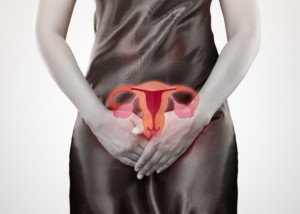
Heavy bleeding during menopause is NOT normal under any circumstances and could actually mean cancer. Certain cancers can cause heavy bleeding.
Menopause means that you are no longer menstruating. So if you’re bleeding…one of two things is going on:
#1. You’re menstruating and are not going through menopause. Somehow, you mistakenly came to believe that you were undergoing “the change.”
Menopause means no period. So if you’re bleeding, you’d better find out why.
Dr. Gino Tutera says that heavy bleeding during menopause is not normal, but adds that this would mean that a woman is entirely “into menopause as evidenced by testing (labs) or having no menstruation for 12 months.”
Dr. Gino Tutera is an OB/GYN and specialist in bioidentical hormone replacement therapy, and I interviewed him for this topic.
If you haven’t had lab testing, then it’s likely you’ve assumed that you’re menopausal because you’ve missed several periods in a row.
But then some heavy bleeding occurs: menstruation. Or is it?
Ask yourself:
• Does this bleeding resemble my typical menstruation?
• Was it preceded by my typical PMS symptoms?
• Is it different in some way?
• If it doesn’t follow the normal pattern of my previous periods, COULD I be in menopause?
• And if so…WHY am I bleeding?
• Red flag: The bleeding is heavy…and was sudden-onset.
• Does the bleeding also come after having intercourse? This could mean cervical cancer or vaginal cancer.
“During the transition into a full menopause it is very common for women to have significant variations in the timing of their periods and amount of bleeding,” points out Dr. Tutera.
“The ovaries are just not functioning very consistently from day to day.”
#2. You’re going through menopause but are bleeding heavily due to a medical condition.
Causes of Bleeding During Menopause (no particular order)
• Uterine cancer
• Cervical cancer
• Vaginal cancer
• Ovarian cancer that has spread to the uterus
• Precancerous uterine changes
• Benign cervical or uterine polyps
• Uterine fibroids
• Fluctuations in uterine wall thickness
• Cervical infection
• Low or high thyroid
• Polycystic ovary syndrome
• Menopausal hormone therapy
• Chlamydia and gonorrhea
• Vaginitis
• Pelvic inflammatory disease
• Celiac disease
• Liver or kidney disease
• A blood clotting disorder
Bleeding during confirmed menopause – heavy or not – needs to be checked out right away. It could be cancer, but in most cases it is not.

 initially specialized in obstetrics and gynecology and then moved on to treating hormonal imbalances in women. He passed away in 2015.
initially specialized in obstetrics and gynecology and then moved on to treating hormonal imbalances in women. He passed away in 2015.







































